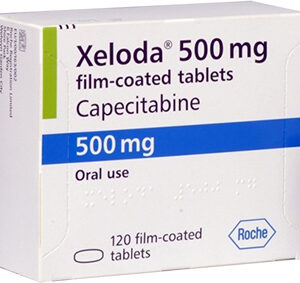Fertomid is a medication that contains clomiphene citrate as its active ingredient. It belongs to a class of drugs known as selective estrogen receptor modulators (SERMs). Fertomid is primarily used for the treatment of ovulatory dysfunction in women who are trying to conceive. It works by stimulating the release of certain hormones in the body that are necessary for ovulation.
Do’s and Don’ts
It is important to note that Fertomid should not be taken in certain situations. It is contraindicated in individuals with a known allergy to clomiphene citrate or any of the ingredients in the medication. Furthermore, Fertomid should not be used by women who are already pregnant, as it may cause harm to the developing fetus. Additionally, individuals with liver disease, abnormal vaginal bleeding, ovarian cysts, or a history of blood clots should avoid taking Fertomid.
Fertomid and Your Health
Like any medication, Fertomid can potentially cause side effects. Common side effects include hot flashes, breast tenderness, nausea, and headache. These side effects are usually mild and temporary. However, if they persist or become bothersome, it is advised to consult a healthcare professional. In rare cases, Fertomid may cause more serious side effects such as visual disturbances, pelvic pain, and allergic reactions. If any of these occur, immediate medical attention should be sought.
Proper Use
Fertomid should be taken exactly as prescribed by a healthcare professional. Typically, the treatment starts on the fifth day of the menstrual cycle and continues for five days. It is important to follow the recommended dosage and duration of treatment, as directed by the physician. If a dose is missed, it should be taken as soon as remembered. However, if it is almost time for the next dose, the missed dose should be skipped. Taking a double dose to make up for a missed one is not recommended. In case of an overdose, medical attention should be sought immediately.
Mixing with Other Drugs
Fertomid can interact with certain medications, so it is important to inform the healthcare professional about all the medications being taken. It may interact with hormonal contraceptives, causing them to be less effective. Fertomid may also interact with medications used to treat blood clots, such as warfarin, increasing the risk of bleeding. Additionally, it may interact with medications that affect liver enzymes, potentially altering the levels of Fertomid in the body. It is important to discuss all potential drug interactions with a healthcare professional before starting Fertomid.
Questions and Answers for Fertomid
- Q: How long does it usually take for Fertomid to stimulate ovulation?
A: Fertomid may stimulate ovulation within 5 to 10 days of starting the treatment. - Q: Can Fertomid be used for male infertility?
A: Fertomid is primarily used for the treatment of ovulatory dysfunction in women and its effectiveness in male infertility is not well established. - Q: Can Fertomid increase the chances of multiple pregnancies?
A: Yes, Fertomid may increase the risk of having twins or multiple pregnancies. This should be discussed with a healthcare professional. - Q: Can Fertomid be used during breastfeeding?
A: Fertomid is not recommended for use during breastfeeding as it may pass into breast milk and could potentially harm the nursing infant. - Q: Can Fertomid be used for an extended period of time?
A: Fertomid is usually used for a maximum of six treatment cycles. Prolonged use may increase the risk of certain side effects and should be discussed with a healthcare professional.






Reviews
There are no reviews yet.